afterLoad (456.3KB) (5.14ms)
afterInitialise (1.27MB) (38.93ms)
afterRoute (827.66KB) (12.24ms)
beforeRenderComponent com_content (36.12KB) (339μs)
Before Access::preloadComponents (all components) (194.78KB) (10.53ms)
After Access::preloadComponents (all components) (98.07KB) (6.77ms)
Before Access::preloadPermissions (com_content) (1.6KB) (15μs)
After Access::preloadPermissions (com_content) (3.31MB) (22.22ms)
Before Access::getAssetRules (id:62 name:com_content.category.20) (130.65KB) (113μs)
After Access::getAssetRules (id:62 name:com_content.category.20) (7.38KB) (44μs)
Before Access::getAssetRules (id:8 name:com_content) (69.13KB) (34.12ms)
After Access::getAssetRules (id:8 name:com_content) (6.17KB) (28μs)
afterRenderComponent com_content (1.59MB) (253ms)
afterDispatch (41.29KB) (11.91ms)
beforeRenderRawModule mod_articles_category (READ MORE...) (398.66KB) (27.7ms)
afterRenderRawModule mod_articles_category (READ MORE...) (64.65KB) (231ms)
beforeRenderRawModule mod_custom (BOOST YOUR IMMUNE DEFENSE) (6.45KB) (29μs)
afterRenderRawModule mod_custom (BOOST YOUR IMMUNE DEFENSE) (4.42KB) (195μs)
beforeRenderRawModule mod_articles_latest (Latest news) (976B) (15μs)
afterRenderRawModule mod_articles_latest (Latest news) (51.8KB) (122ms)
beforeRenderRawModule mod_tags_popular (Search) (2.09KB) (24μs)
afterRenderRawModule mod_tags_popular (Search) (90.98KB) (112ms)
beforeRenderRawModule mod_custom (the Vitamin and Mineral Guide) (960B) (26μs)
afterRenderRawModule mod_custom (the Vitamin and Mineral Guide) (1.02KB) (43μs)
beforeRenderRawModule mod_custom (Weight loss that works) (736B) (10μs)
afterRenderRawModule mod_custom (Weight loss that works) (928B) (20μs)
beforeRenderRawModule mod_custom (Get additionel and more detailed knowledge ) (752B) (9μs)
afterRenderRawModule mod_custom (Get additionel and more detailed knowledge ) (944B) (18μs)
beforeRenderRawModule mod_custom (Q10 goes by many names) (736B) (8μs)
afterRenderRawModule mod_custom (Q10 goes by many names) (928B) (16μs)
beforeRenderRawModule mod_custom (Check this before you buy a Q10 product) (752B) (8μs)
afterRenderRawModule mod_custom (Check this before you buy a Q10 product) (944B) (16μs)
beforeRenderRawModule mod_custom (Are you taking supplements) (736B) (7μs)
afterRenderRawModule mod_custom (Are you taking supplements) (2.28KB) (16μs)
beforeRenderRawModule mod_custom (Antiaging) (720B) (8μs)
afterRenderRawModule mod_custom (Antiaging) (912B) (16μs)
beforeRenderRawModule mod_custom (Exercise) (720B) (8μs)
afterRenderRawModule mod_custom (Exercise) (912B) (15μs)
beforeRenderRawModule mod_custom (Useful Links) (720B) (7μs)
afterRenderRawModule mod_custom (Useful Links) (1.02KB) (16μs)
beforeRenderModule mod_articles_category (READ MORE...) (268.2KB) (4.04ms)
afterRenderModule mod_articles_category (READ MORE...) (1.25KB) (57μs)
beforeRenderModule mod_custom (BOOST YOUR IMMUNE DEFENSE) (6.81KB) (13μs)
afterRenderModule mod_custom (BOOST YOUR IMMUNE DEFENSE) (1.28KB) (24μs)
beforeRenderModule mod_articles_latest (Latest news) (592B) (11μs)
afterRenderModule mod_articles_latest (Latest news) (1.27KB) (19μs)
beforeRenderModule mod_tags_popular (Search) (1.73KB) (11μs)
afterRenderModule mod_tags_popular (Search) (1.27KB) (18μs)
beforeRenderModule mod_custom (the Vitamin and Mineral Guide) (1.31KB) (9μs)
afterRenderModule mod_custom (the Vitamin and Mineral Guide) (1.28KB) (17μs)
beforeRenderModule mod_custom (Weight loss that works) (336B) (8μs)
afterRenderModule mod_custom (Weight loss that works) (1.27KB) (18μs)
beforeRenderModule mod_custom (Get additionel and more detailed knowledge ) (368B) (1.01ms)
afterRenderModule mod_custom (Get additionel and more detailed knowledge ) (1.3KB) (28μs)
beforeRenderModule mod_custom (Q10 goes by many names) (336B) (11μs)
afterRenderModule mod_custom (Q10 goes by many names) (1.27KB) (20μs)
beforeRenderModule mod_custom (Check this before you buy a Q10 product) (352B) (9μs)
afterRenderModule mod_custom (Check this before you buy a Q10 product) (1.28KB) (18μs)
beforeRenderModule mod_custom (Are you taking supplements) (352B) (8μs)
afterRenderModule mod_custom (Are you taking supplements) (1.28KB) (18μs)
beforeRenderModule mod_custom (Antiaging) (336B) (8μs)
afterRenderModule mod_custom (Antiaging) (1.27KB) (16μs)
beforeRenderModule mod_custom (Exercise) (336B) (8μs)
afterRenderModule mod_custom (Exercise) (1.25KB) (17μs)
beforeRenderModule mod_custom (Useful Links) (336B) (7μs)
afterRenderModule mod_custom (Useful Links) (3.77KB) (18μs)
beforeRenderRawModule mod_menu (Main Menu - English) (37.51KB) (708μs)
afterRenderRawModule mod_menu (Main Menu - English) (190.16KB) (2.96ms)
beforeRenderModule mod_menu (Main Menu - English) (720B) (5μs)
afterRenderModule mod_menu (Main Menu - English) (4.86KB) (52μs)
beforeRenderRawModule mod_languages (Sprogskift) (3.94KB) (17μs)
afterRenderRawModule mod_languages (Sprogskift) (21.83KB) (2.91ms)
beforeRenderModule mod_languages (Sprogskift) (720B) (5μs)
afterRenderModule mod_languages (Sprogskift) (5.31KB) (19μs)
beforeRenderRawModule mod_finder () (6.34KB) (10μs)
afterRenderRawModule mod_finder () (68.96KB) (2.66ms)
beforeRenderModule mod_finder () (704B) (4μs)
afterRenderModule mod_finder () (3.29KB) (31μs)
beforeRenderRawModule mod_custom () (6.62KB) (127μs)
afterRenderRawModule mod_custom () (26.52KB) (1.83ms)
beforeRenderModule mod_custom () (704B) (5μs)
afterRenderModule mod_custom () (1.23KB) (45μs)
beforeRenderRawModule mod_menu (Main Menu - English) (5.07KB) (94μs)
afterRenderRawModule mod_menu (Main Menu - English) (6.3KB) (685μs)
beforeRenderModule mod_menu (Main Menu - English) (720B) (3μs)
afterRenderModule mod_menu (Main Menu - English) (1.25KB) (39μs)
beforeRenderRawModule mod_languages (Sprogskift Mobil) (912B) (15μs)
afterRenderRawModule mod_languages (Sprogskift Mobil) (3.89KB) (2.15ms)
beforeRenderModule mod_languages (Sprogskift Mobil) (720B) (5μs)
afterRenderModule mod_languages (Sprogskift Mobil) (1.27KB) (30μs)
beforeRenderRawModule mod_finder () (2.3KB) (10μs)
afterRenderRawModule mod_finder () (6.29KB) (955μs)
beforeRenderModule mod_finder () (704B) (5μs)
afterRenderModule mod_finder () (1.23KB) (40μs)
beforeRenderRawModule mod_custom () (8.66KB) (168μs)
afterRenderRawModule mod_custom () (904B) (121μs)
beforeRenderModule mod_custom () (704B) (2μs)
afterRenderModule mod_custom () (2.43KB) (22μs)
beforeRenderRawModule mod_custom () (688B) (81μs)
afterRenderRawModule mod_custom () (896B) (86μs)
beforeRenderModule mod_custom () (704B) (2μs)
afterRenderModule mod_custom () (2.71KB) (20μs)
afterRender (300.22KB) (9.23ms)
| 1 x afterRenderComponent com_content (1.59MB) (27.46%) | 252.57ms |
| 1 x afterRenderRawModule mod_articles_category (READ MORE...) (64.65KB) (25.15%) | 231.31ms |
| 1 x afterRenderRawModule mod_articles_latest (Latest news) (51.8KB) (13.32%) | 122.49ms |
| 1 x afterRenderRawModule mod_tags_popular (Search) (90.98KB) (12.14%) | 111.70ms |
| 1 x afterInitialise (1.27MB) (4.23%) | 38.93ms |
| 1 x Before Access::getAssetRules (id:8 name:com_content) (69.13KB) (3.71%) | 34.12ms |
| 1 x beforeRenderRawModule mod_articles_category (READ MORE...) (398.66KB) (3.01%) | 27.70ms |
| 1 x After Access::preloadPermissions (com_content) (3.31MB) (2.42%) | 22.22ms |
| 1 x afterRoute (827.66KB) (1.33%) | 12.24ms |
| 1 x afterDispatch (41.29KB) (1.29%) | 11.91ms |
| 1 x Before Access::preloadComponents (all components) (194.78KB) (1.14%) | 10.53ms |
| 1 x afterRender (300.22KB) (1%) | 9.23ms |
| 1 x After Access::preloadComponents (all components) (98.07KB) (0.74%) | 6.77ms |
| 1 x afterLoad (456.3KB) (0.56%) | 5.14ms |
| 1 x beforeRenderModule mod_articles_category (READ MORE...) (268.2KB) (0.44%) | 4.04ms |
| 1 x afterRenderRawModule mod_menu (Main Menu - English) (190.16KB) (0.32%) | 2.96ms |
| 1 x afterRenderRawModule mod_languages (Sprogskift) (21.83KB) (0.32%) | 2.91ms |
| 1 x afterRenderRawModule mod_finder () (68.96KB) (0.29%) | 2.66ms |
| 1 x afterRenderRawModule mod_languages (Sprogskift Mobil) (3.89KB) (0.23%) | 2.15ms |
| 1 x afterRenderRawModule mod_custom () (26.52KB) (0.2%) | 1.83ms |
| 1 x beforeRenderModule mod_custom (Get additionel and more detailed knowledge ) (368B) (0.11%) | 1.01ms |
| 1 x afterRenderRawModule mod_finder () (6.29KB) (0.1%) | 955μs |
| 1 x beforeRenderRawModule mod_menu (Main Menu - English) (37.51KB) (0.08%) | 708μs |
| 1 x afterRenderRawModule mod_menu (Main Menu - English) (6.3KB) (0.07%) | 685μs |
| 1 x beforeRenderComponent com_content (36.12KB) (0.04%) | 339μs |
| 1 x afterRenderRawModule mod_custom (BOOST YOUR IMMUNE DEFENSE) (4.42KB) (0.02%) | 195μs |
| 1 x beforeRenderRawModule mod_custom () (8.66KB) (0.02%) | 168μs |
| 1 x beforeRenderRawModule mod_custom () (6.62KB) (0.01%) | 127μs |
| 1 x afterRenderRawModule mod_custom () (904B) (0.01%) | 121μs |
| 1 x Before Access::getAssetRules (id:62 name:com_content.category.20) (130.65KB) (0.01%) | 113μs |
| 1 x beforeRenderRawModule mod_menu (Main Menu - English) (5.07KB) (0.01%) | 94μs |
| 1 x afterRenderRawModule mod_custom () (896B) (0.01%) | 86μs |
| 1 x beforeRenderRawModule mod_custom () (688B) (0.01%) | 81μs |
| 1 x afterRenderModule mod_articles_category (READ MORE...) (1.25KB) (0.01%) | 57μs |
| 1 x afterRenderModule mod_menu (Main Menu - English) (4.86KB) (0.01%) | 52μs |
| 1 x afterRenderModule mod_custom () (1.23KB) (0%) | 45μs |
| 1 x After Access::getAssetRules (id:62 name:com_content.category.20) (7.38KB) (0%) | 44μs |
| 1 x afterRenderRawModule mod_custom (the Vitamin and Mineral Guide) (1.02KB) (0%) | 43μs |
| 1 x afterRenderModule mod_finder () (1.23KB) (0%) | 40μs |
| 1 x afterRenderModule mod_menu (Main Menu - English) (1.25KB) (0%) | 39μs |
| 1 x afterRenderModule mod_finder () (3.29KB) (0%) | 31μs |
| 1 x afterRenderModule mod_languages (Sprogskift Mobil) (1.27KB) (0%) | 30μs |
| 1 x beforeRenderRawModule mod_custom (BOOST YOUR IMMUNE DEFENSE) (6.45KB) (0%) | 29μs |
| 1 x afterRenderModule mod_custom (Get additionel and more detailed knowledge ) (1.3KB) (0%) | 28μs |
| 1 x After Access::getAssetRules (id:8 name:com_content) (6.17KB) (0%) | 28μs |
| 1 x beforeRenderRawModule mod_custom (the Vitamin and Mineral Guide) (960B) (0%) | 26μs |
| 1 x afterRenderModule mod_custom (BOOST YOUR IMMUNE DEFENSE) (1.28KB) (0%) | 24μs |
| 1 x beforeRenderRawModule mod_tags_popular (Search) (2.09KB) (0%) | 24μs |
| 1 x afterRenderModule mod_custom () (2.43KB) (0%) | 22μs |
| 1 x afterRenderModule mod_custom (Q10 goes by many names) (1.27KB) (0%) | 20μs |
| 1 x afterRenderModule mod_custom () (2.71KB) (0%) | 20μs |
| 1 x afterRenderRawModule mod_custom (Weight loss that works) (928B) (0%) | 20μs |
| 1 x afterRenderModule mod_languages (Sprogskift) (5.31KB) (0%) | 19μs |
| 1 x afterRenderModule mod_articles_latest (Latest news) (1.27KB) (0%) | 19μs |
| 1 x afterRenderRawModule mod_custom (Get additionel and more detailed knowledge ) (944B) (0%) | 18μs |
| 1 x afterRenderModule mod_tags_popular (Search) (1.27KB) (0%) | 18μs |
| 1 x afterRenderModule mod_custom (Weight loss that works) (1.27KB) (0%) | 18μs |
| 1 x afterRenderModule mod_custom (Check this before you buy a Q10 product) (1.28KB) (0%) | 18μs |
| 1 x afterRenderModule mod_custom (Are you taking supplements) (1.28KB) (0%) | 18μs |
| 1 x afterRenderModule mod_custom (Useful Links) (3.77KB) (0%) | 18μs |
| 1 x afterRenderModule mod_custom (Exercise) (1.25KB) (0%) | 17μs |
| 1 x afterRenderModule mod_custom (the Vitamin and Mineral Guide) (1.28KB) (0%) | 17μs |
| 1 x beforeRenderRawModule mod_languages (Sprogskift) (3.94KB) (0%) | 17μs |
| 1 x afterRenderRawModule mod_custom (Q10 goes by many names) (928B) (0%) | 16μs |
| 1 x afterRenderRawModule mod_custom (Check this before you buy a Q10 product) (944B) (0%) | 16μs |
| 1 x afterRenderRawModule mod_custom (Are you taking supplements) (2.28KB) (0%) | 16μs |
| 1 x afterRenderRawModule mod_custom (Antiaging) (912B) (0%) | 16μs |
| 1 x afterRenderRawModule mod_custom (Useful Links) (1.02KB) (0%) | 16μs |
| 1 x afterRenderModule mod_custom (Antiaging) (1.27KB) (0%) | 16μs |
| 1 x Before Access::preloadPermissions (com_content) (1.6KB) (0%) | 15μs |
| 1 x beforeRenderRawModule mod_articles_latest (Latest news) (976B) (0%) | 15μs |
| 1 x afterRenderRawModule mod_custom (Exercise) (912B) (0%) | 15μs |
| 1 x beforeRenderRawModule mod_languages (Sprogskift Mobil) (912B) (0%) | 15μs |
| 1 x beforeRenderModule mod_custom (BOOST YOUR IMMUNE DEFENSE) (6.81KB) (0%) | 13μs |
| 1 x beforeRenderModule mod_articles_latest (Latest news) (592B) (0%) | 11μs |
| 1 x beforeRenderModule mod_tags_popular (Search) (1.73KB) (0%) | 11μs |
| 1 x beforeRenderModule mod_custom (Q10 goes by many names) (336B) (0%) | 11μs |
| 1 x beforeRenderRawModule mod_custom (Weight loss that works) (736B) (0%) | 10μs |
| 1 x beforeRenderRawModule mod_finder () (6.34KB) (0%) | 10μs |
| 1 x beforeRenderRawModule mod_finder () (2.3KB) (0%) | 10μs |
| 3 x beforeRenderModule mod_custom () (704B) (0%) | 9μs |
| 1 x beforeRenderRawModule mod_custom (Get additionel and more detailed knowledge ) (752B) (0%) | 9μs |
| 1 x beforeRenderModule mod_custom (the Vitamin and Mineral Guide) (1.31KB) (0%) | 9μs |
| 1 x beforeRenderModule mod_custom (Check this before you buy a Q10 product) (352B) (0%) | 9μs |
| 2 x beforeRenderModule mod_finder () (704B) (0%) | 9μs |
| 1 x beforeRenderRawModule mod_custom (Check this before you buy a Q10 product) (752B) (0%) | 8μs |
| 1 x beforeRenderRawModule mod_custom (Antiaging) (720B) (0%) | 8μs |
| 1 x beforeRenderRawModule mod_custom (Exercise) (720B) (0%) | 8μs |
| 1 x beforeRenderModule mod_custom (Weight loss that works) (336B) (0%) | 8μs |
| 1 x beforeRenderModule mod_custom (Are you taking supplements) (352B) (0%) | 8μs |
| 1 x beforeRenderModule mod_custom (Antiaging) (336B) (0%) | 8μs |
| 2 x beforeRenderModule mod_menu (Main Menu - English) (720B) (0%) | 8μs |
| 1 x beforeRenderRawModule mod_custom (Q10 goes by many names) (736B) (0%) | 8μs |
| 1 x beforeRenderModule mod_custom (Exercise) (336B) (0%) | 8μs |
| 1 x beforeRenderRawModule mod_custom (Are you taking supplements) (736B) (0%) | 7μs |
| 1 x beforeRenderRawModule mod_custom (Useful Links) (720B) (0%) | 7μs |
| 1 x beforeRenderModule mod_custom (Useful Links) (336B) (0%) | 7μs |
| 1 x beforeRenderModule mod_languages (Sprogskift) (720B) (0%) | 5μs |
| 1 x beforeRenderModule mod_languages (Sprogskift Mobil) (720B) (0%) | 5μs |
 Sleep apnea affects our breathing during sleep. The condition is also known to impair the patient’s health and quality of life. It even appears that magnesium deficiency is a common problem in patients with sleep apnea and that adds to the risk of systemic inflammation, cardiovascular disease, and metabolic disorders, according to a new meta-analysis from Charles Sturt University in Australia. In this study, researchers demonstrate for the first time ever why patients with sleep apnea may need extra magnesium.
Sleep apnea affects our breathing during sleep. The condition is also known to impair the patient’s health and quality of life. It even appears that magnesium deficiency is a common problem in patients with sleep apnea and that adds to the risk of systemic inflammation, cardiovascular disease, and metabolic disorders, according to a new meta-analysis from Charles Sturt University in Australia. In this study, researchers demonstrate for the first time ever why patients with sleep apnea may need extra magnesium.







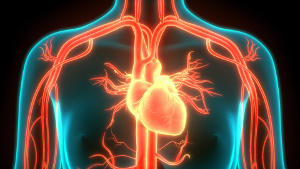 The diet’s content of vitamin K1 and vitamin K2 lowers the risk of atherosclerosis and cardiovascular disease by way of several mechanisms, yet there are relatively few studies that show the relation. In a Danish study that is published in Journal of the American Heart Association, scientists looked closer at how the content of the two forms vitamin K in the diet affect the risk of hospitalization linked to atherosclerosis and cardiovascular disease. So how does
The diet’s content of vitamin K1 and vitamin K2 lowers the risk of atherosclerosis and cardiovascular disease by way of several mechanisms, yet there are relatively few studies that show the relation. In a Danish study that is published in Journal of the American Heart Association, scientists looked closer at how the content of the two forms vitamin K in the diet affect the risk of hospitalization linked to atherosclerosis and cardiovascular disease. So how does 
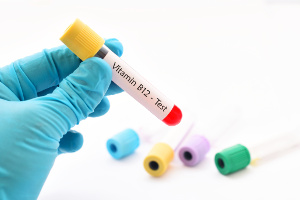 The number of seniors worldwide is increasing and more and more are affected by Alzheimer’s disease, the leading cause of dementia. We should therefore focus much more on this health problem that comes with an enormous human and socio-economic price tag. According to a new meta-analysis, supplementation with
The number of seniors worldwide is increasing and more and more are affected by Alzheimer’s disease, the leading cause of dementia. We should therefore focus much more on this health problem that comes with an enormous human and socio-economic price tag. According to a new meta-analysis, supplementation with 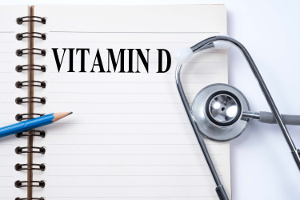
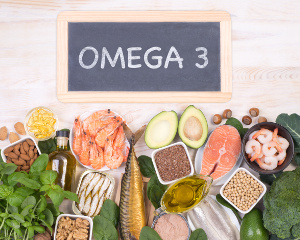 It is commonly known that omega-3 fatty acids are involved in a number of essential functions in the body. One of the fatty acids, DHA, may even have a toxic effect on cancer cells because they are unable to store the fatty acid correctly. In a new Belgian study published in Cell Metabolism, scientists explain the exact mechanisms. They also suggest that omega-3 supplements may be useful in cancer therapy, especially because the average
It is commonly known that omega-3 fatty acids are involved in a number of essential functions in the body. One of the fatty acids, DHA, may even have a toxic effect on cancer cells because they are unable to store the fatty acid correctly. In a new Belgian study published in Cell Metabolism, scientists explain the exact mechanisms. They also suggest that omega-3 supplements may be useful in cancer therapy, especially because the average 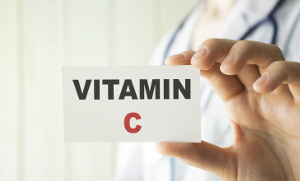 During World War II, food supplies were scarce. At one point, English researchers wanted to find out how little
During World War II, food supplies were scarce. At one point, English researchers wanted to find out how little 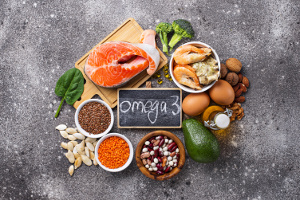 Oily fish and fish oil have a high content of the two omega-3 fatty acids, EPA (eicosapentaenoic acid) and DHA (docosahexaenoic acid), that are important for our brain, nervous system, intelligence, and mental health. Modern diets, however, are to blame for our lack of
Oily fish and fish oil have a high content of the two omega-3 fatty acids, EPA (eicosapentaenoic acid) and DHA (docosahexaenoic acid), that are important for our brain, nervous system, intelligence, and mental health. Modern diets, however, are to blame for our lack of 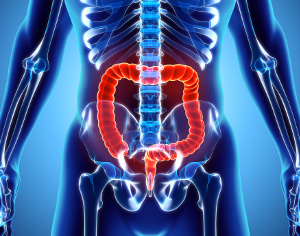 Colorectal cancer is one of the most common cancer forms in Denmark, which is why prevention is so important. According to a new American study that is published in Gastroenterology, increased intake of
Colorectal cancer is one of the most common cancer forms in Denmark, which is why prevention is so important. According to a new American study that is published in Gastroenterology, increased intake of  Type 1 diabetes can eventually lead to eye damage and if this is not discovered in time it may cause blurry or impaired vision. According to a new study that is published in Diabetes, supplementing with
Type 1 diabetes can eventually lead to eye damage and if this is not discovered in time it may cause blurry or impaired vision. According to a new study that is published in Diabetes, supplementing with  Sales of plant-based meat, also known as meat analogue, has increased for environmental reasons and a number of other reasons. However, even if meat analogue does resemble regular animal meat it has an entirely different nutritional value. According to a study from Duke University in the United States, real meat contains 22 different nutrients and metabolites that you do not get from meat analogue. On the other hand, meat based on vegetarian sources contains 31 nutrients and metabolites that are not found in normal meat. The largest difference between the two, according to the scientists, lies in their content of amino acids, peptides, vitamins, phenols, and fatty acids. The researchers also mention that a diet based on vegetable and animal products is complementary because it contains more nutrients.
Sales of plant-based meat, also known as meat analogue, has increased for environmental reasons and a number of other reasons. However, even if meat analogue does resemble regular animal meat it has an entirely different nutritional value. According to a study from Duke University in the United States, real meat contains 22 different nutrients and metabolites that you do not get from meat analogue. On the other hand, meat based on vegetarian sources contains 31 nutrients and metabolites that are not found in normal meat. The largest difference between the two, according to the scientists, lies in their content of amino acids, peptides, vitamins, phenols, and fatty acids. The researchers also mention that a diet based on vegetable and animal products is complementary because it contains more nutrients. More and more people experience despair and depression. There can be several underlying factors but according to a large German population study, lack of
More and more people experience despair and depression. There can be several underlying factors but according to a large German population study, lack of 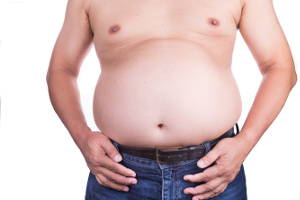 Multiple studies have shown that
Multiple studies have shown that